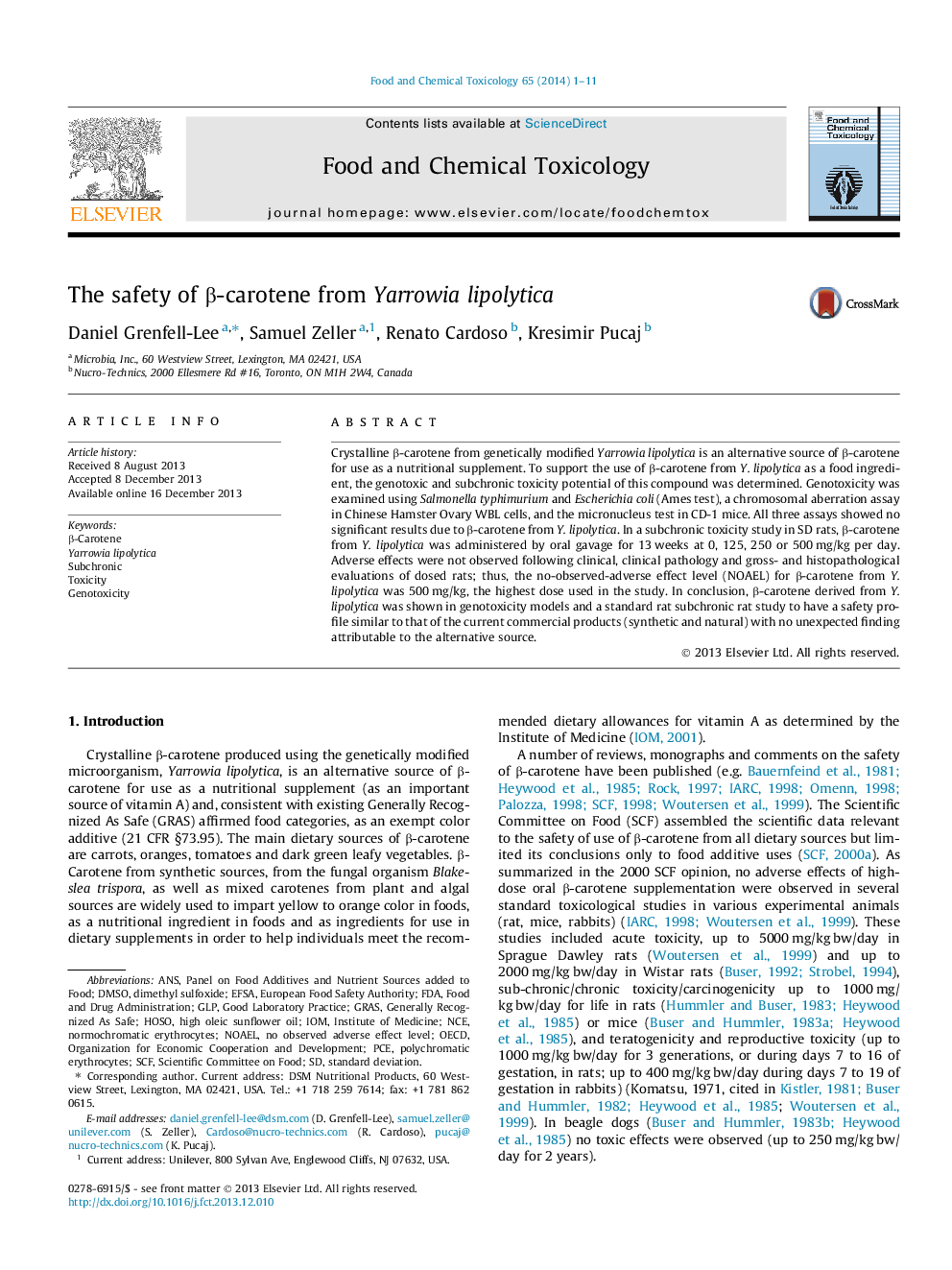| Article ID | Journal | Published Year | Pages | File Type |
|---|---|---|---|---|
| 5850613 | Food and Chemical Toxicology | 2014 | 11 Pages |
Abstract
Crystalline β-carotene from genetically modified Yarrowia lipolytica is an alternative source of β-carotene for use as a nutritional supplement. To support the use of β-carotene from Y. lipolytica as a food ingredient, the genotoxic and subchronic toxicity potential of this compound was determined. Genotoxicity was examined using Salmonella typhimurium and Escherichia coli (Ames test), a chromosomal aberration assay in Chinese Hamster Ovary WBL cells, and the micronucleus test in CD-1 mice. All three assays showed no significant results due to β-carotene from Y. lipolytica. In a subchronic toxicity study in SD rats, β-carotene from Y. lipolytica was administered by oral gavage for 13 weeks at 0, 125, 250 or 500 mg/kg per day. Adverse effects were not observed following clinical, clinical pathology and gross- and histopathological evaluations of dosed rats; thus, the no-observed-adverse effect level (NOAEL) for β-carotene from Y. lipolytica was 500 mg/kg, the highest dose used in the study. In conclusion, β-carotene derived from Y. lipolytica was shown in genotoxicity models and a standard rat subchronic rat study to have a safety profile similar to that of the current commercial products (synthetic and natural) with no unexpected finding attributable to the alternative source.
Keywords
EFSAFDAGLPNOAELSCFOECDIOMNCEHOSOGRASPCEYarrowia lipolyticaDMSOβ-caroteneEuropean Food Safety Authoritypolychromatic erythrocytesnormochromatic erythrocytesstandard deviationgenerally recognized as safeGood Laboratory PracticeDimethyl sulfoxidehigh oleic sunflower oilSubchronicFood and Drug AdministrationOrganization for Economic Cooperation and DevelopmentANSToxicityGenotoxicityInstitute of MedicineNo observed adverse effect levelScientific Committee on Food
Related Topics
Life Sciences
Agricultural and Biological Sciences
Food Science
Authors
Daniel Grenfell-Lee, Samuel Zeller, Renato Cardoso, Kresimir Pucaj,
